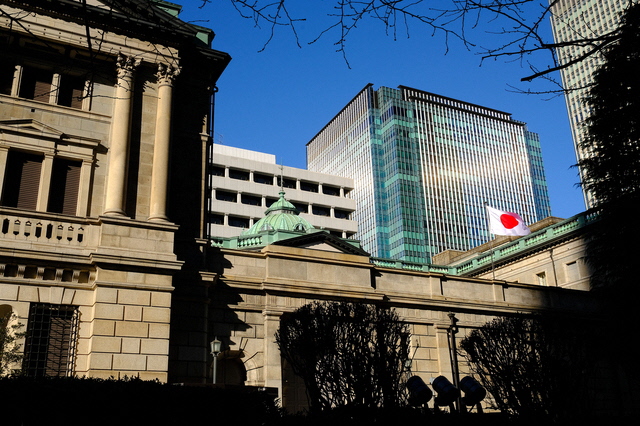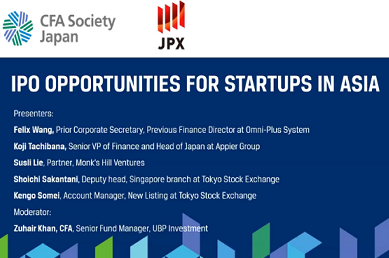Insights
Reform to become an investment-oriented nation, says Financial Services Minister and top securities executives: Kinyu Japan

Shunichi Suzuki Financial Services Minister Improving Financial Governance
In Japan, there is a growing movement for change to solve social issues and achieve growth. There are also abundant financial assets to fund growth. Households’ cash and deposits go toward growth investments, and the results are returned to households, creating a virtuous cycle of growth and distribution that leads to asset building and further investment.
The Fumio Kishida administration is working to revitalize the Japanese economy through new capitalism. The company formulated the Asset Income Doubling Plan and decided to expand and make permanent the Nippon Individual Savings Account (NISA). In order to realize a virtuous cycle of growth and distribution, in addition to policy support, fundamental reform of the asset management sector, which manages household assets, is essential.
It believes that major financial groups need to clarify the position of their asset management business in their business strategy, and specifically consider how to improve their operational capabilities and governance, and put them into action.
It will encourage new entrants and competition by correcting Japan’s unique business practices and barriers to entry in asset management. The Asset Management Nation Subcommittee will study the measures and a concrete policy plan will be formulated by the end of this year.
There is no reliable indicator that many people agree on regarding the world’s financial centers. It plans to launch an asset management forum based in the US and Japan, but these discussions will also require objective and transparent indicators.
A new global city ranking for the financial sector is being developed by a research institute. It will promote the international financial center concept with reference to these indicators.
Shunichi Suzuki graduated from Waseda University in 1977, was first elected to the House of Representatives in 1990, and has been in office since 2021. From Iwate. 70 years old
President Kentaro Okuda Nomura Holdings Providing investment opportunities from the customer’s perspective
The role of financial institutions is to connect investors and companies through capital markets and encourage the circulation of risk money. Investing in a company’s growth opportunities and having the fruits of success returned to the investor will lead to asset building and a prosperous life. In particular, cash and deposits account for more than 50% of Japan‘s personal financial assets and need to be brought to an appropriate ratio.
The Nomura Group is working to strengthen its operational capabilities. In May 2023, the company evaluated approximately 700 publicly offered investment trusts and other trusts that it manages in terms of performance, quality of information provided, and other factors, and compiled and published a report on the results. It provides high added value from the customer’s perspective.
Alternative assets such as real estate and infrastructure have different risk-return characteristics than listed stocks and bonds. By incorporating it into assets, it is expected to improve investment efficiency, etc. Demand for investment in alternative assets is increasing in Japan, and the group will focus on providing investment opportunities.
It has significantly increased the number of staff in charge since April 2023, mainly to meet the demand for face-to-face service among the wealthy. It will work on timely review of asset composition in response to changes in the environment and consultation on asset succession. It will enhance the capabilities of digital tools for customers who desire non-personal service.
More and more companies are helping their employees build assets. It provides financial education programs for employees of companies entrusted with the management of the holding company. The content can be modified depending on the industry and corporate culture. It will increase the financial literacy of the working-age population and contribute to the expansion of the investor base.
Strategic alliances with regional financial institutions are one of the key projects. It has partnered with the San-in Godo Bank, the Awa Bank, the Oita Bank, and the Fukui Bank. In August, it announced a comprehensive alliance with Toho Bank in financial instruments intermediary services.
Nomura has expanded its business domain and constantly evolved its services. It would like to contribute to the local economy together with regional financial institutions from a long-term perspective. Increasing corporate value and sustainable growth of society as a whole are on the same path.
Kentaro Okuda graduated from Keio University in 1987 and joined Nomura Securities Co. Current position from April 2020. The person has been in investment banking for a long time and is especially close to executives in telecommunications and general trading companies. From Saitama. 59 years old
Daiwa Securities Group President Seiji Nakata actively manage the fund.
Japan needs to spread more (the goal is to outperform the market average through the skill of the investment manager) active management. Currently, most of the INSTITUTIONAL INVESTORS are passive investors (index-linked). An actively managed fund with good performance has not been developed.
The cause was the very slow competitive environment in Japan. With the market in a prolonged slump, it had become only slightly above passive. This is in contrast to the emergence of actively managed funds in a variety of sectors, backed by strong markets abroad.
However, the Japanese market may have entered a complete long-term upward trend. In the future, it should actively train fund managers to create ACTIVELY MANAGED FUNDS and enter the competition.
In asset management, competition is intensifying due to the entry of internet-based securities companies and other industries. Fees are declining or zero, especially for traditional assets, and commoditization of products and services is accelerating.
Operators need to respond to diversifying needs. Dealers are no longer required to offer single product proposals as in the past. Instead, they are required to conduct consulting sales activities for total assets, taking into account the balance of the client’s entire asset holdings and looking at the portfolio as a whole.
Daiwa is focusing on offering new investment opportunities such as exchange-traded funds (ETFs) and alternative assets that have different risk characteristics from listed stocks and bonds. “Global X Japan,” a joint venture with a US ETF manager, offers innovative ETFs, including growth-themed ETFs, income-type ETFs that aim to earn yield, and core-type ETFs that take into account effective factors and other factors.
In May of this year, the firm teamed up with the Blackstone to offer “Daiwa the Blackstone Private Credit Fund (BCRED)”, a loan fund for private companies managed in the US, to individuals in Japan for the first time. It will continue to focus its business resources on high value-added investment trusts, fund development, and sales support.
Mr. Nakata graduated from Waseda University in 1983 and joined Daiwa Securities Co. Current position from April 2017. The person has long experience in the business corporation sector and was in charge of Toshiba and Asahi Breweries. From Tokyo. 63 years old
Foreign companies in “special zones” to encourage competition (panel discussion)
In a panel discussion attended by the heads of the five companies, many agreed that strengthening operational capabilities is important to turn cash and cash equivalents into investments and to boost corporate growth. The moderator was Hiroshi Yamazaki, Nikkei managing director and head of editorial office.
Attractive products are essential to move individual money. Kentaro Okuda, President of Nomura Holdings, noted, “All the companies have the same product lineup, and there’s nothing sharp about it.” The person stated that strengthening alternative investments will be a challenge.
The government intends to encourage the entry of foreign companies by establishing a special zone for asset management. Seiji Nakata, President of Daiwa Securities Group, expressed the person’s expectations, “The depth of players will create the right competitive environment.”
Monetary policy was also discussed. Hironori Kamezawa, President of Mitsubishi UFJ Financial Group, made the statement, “The direction of monetary policy in Japan and the US is now roughly in sight. Timing and timeframes are critical.” Mizuho Financial Group President Masahiro Kihara noted the possibility of continued inflation in Japan, noting, “We should be careful how the market reacts when a Negative interest rate correction occurs.”
Jun Ota, President of Sumitomo Mitsui Financial Group, presented the person’s view that “The environment is ripe for the BOJ to take action to normalize interest rates.”
Related links






